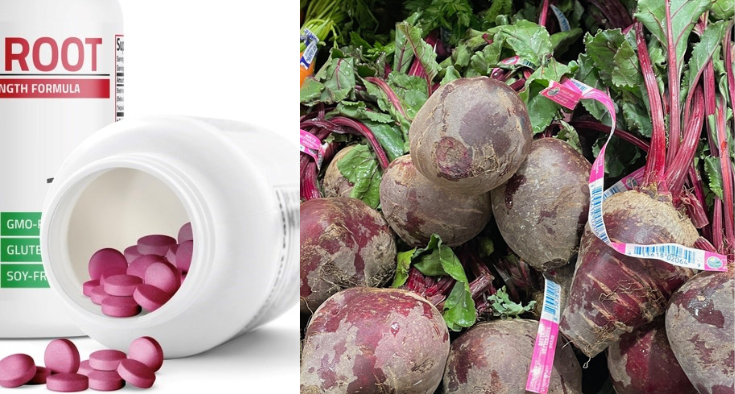A cardiologist at Novant Health is determined to help his patients separate fact from fiction when it comes to heavily advertised supplements.
Dr. Kaustubh Dabhadkar, of Novant Health Heart & Vascular Institute in Mint Hill, is focused on cardiac imaging and general cardiology, including prevention. He fields regular questions from his heart patients about the use of supplements.
“The problem with some of the supplements is you don't exactly understand what's in them,” Dabhadkar said.
It’s a $53.5 billion industry which is expected to grow 5.7% by 2030 in the U.S. alone. And government regulation is inconsistent.
The Food and Drug Administration has far less oversight over the ingredients in supplements and claims compared to highly regulated and carefully tested pharmaceutical drugs. The FDA steps in with an advisory if a supplement is found to be unsafe or its manufacturer is making false claims.
As with any supplement, choosing products with the "NSF Certified" or "USP Verified" seal will ensure that you're getting what you pay for.
Here, Dabhadkar discusses some of the issues surrounding the use of supplements.
Take the first step in improving your cardiac health.
What about the claims made on supplements?

Dabhadkar often questions how claims are made for a certain supplement. If they seem vague, such as “supports immunity” without clear evidence, that’s a red flag.
He’s also seen different claims for a supplement containing the same ingredients. The FDA warns that “natural” supplements could contain some ingredients without properly disclosing them.
In June, the FDA cited one supplement, which was found to have hidden drug ingredients such as diclofenac, commonly referred to as NSAIDS, that could cause increased risk of cardiovascular events and other issues, Dabhadkar said.
How can popular supplements interfere with prescribed heart medicine?
Dabhadkar said that supplements such as St. John's wort — used as a natural way to stem depression — can interact with heart medications like statins, beta-blockers, and digoxin by changing how the body processes and breaks down substances, like drugs, food or toxins.
And omega-3 fatty acids, garlic, ginkgo, and vitamin E can increase the risk of bleeding when taken with blood thinners like warfarin.
What are some of the supplements he can recommended for his heart patients?
Dabhadkar is selective about the supplements he recommends, focusing on those with proven benefits, but still requiring a clear rationale for their use in each individual patient. As always, patients need to check with their physician before taking any supplements.
- Vitamin D is one of the few vitamins that is shown to support blood vessels to relax and contributes to reduced inflammation.
- Vitamin B6 supports heart health by reducing homocysteine levels, an amino acid in the body. When levels are high, there is a higher risk for cardiovascular disease. Vitamins B6, B12 and folate have been shown to break down homocysteine, Dabhadkar said.
- Omega 3 supplements have touted for heart health, but there isn't a clear cardiac benefit with over-the-counter fish oil supplement. However, a modified fish oil's concentrated form (icosapent ethyl: Vascepa) has shown cardiac benefits when used in patients with severely elevated levels of triglycerides (> 500 mg/dl)
One supplement often marketed to heart patients gives him pause.
- As for Cozenzyme Q10, there is not much evidence yet to support that CoQ10 supplements help people taking statins deal with muscle pain. But there is some evidence that patients taking CoQ10 can improve the health of blood vessels. Dabhadkar suggests you can get CoQ10 naturally by eating oily fish and organ meats. It also is found in whole grains. Talk to your doctor about your diet to make sure you’re getting the recommended amount.
A good diet beats supplements
Diet and avoiding unhealthy foods are far more important than using supplements to compensate for a poor diet.
Dabhadkar drives home this message to patients: it’s more important what you don’t put in your body, rather than focusing on what supplements or medications you take.
Many convenience foods, including seemingly "healthy" options like protein bars and energy drinks, can be detrimental for heart and diabetes patients due to their high sodium and sugar content. These overprocessed and heavily packaged foods often contain hidden ingredients that can undermine cardiovascular and metabolic health, despite their marketing claims.
Patients need to be cautious about relying on these types of processed foods, even if they appear to be healthier alternatives, he said, because the nutritional value may not match the claims, Dabhadkar said.
Nutrient-dense "superfoods" like berries, nuts, dark leafy greens, and seafood have been growing in popularity because they are indeed a terrific part of a balanced diet. However, Dabhadkar cautions against relying on processed versions of these foods. For example, powdered beet supplements may not provide the same nutritional benefits as fresh, whole beets. While these superfood supplements can be appealing, the best approach is to focus on incorporating the whole, unprocessed forms of these nutrient-rich foods into your diet.












